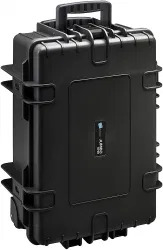Here are key features and considerations related to tool cases
2023-12-29
Tool cases, also known as toolboxes or tool chests, are storage containers designed to organize, protect, and transport tools. These cases come in various sizes, materials, and configurations to accommodate different types of tools and the needs of professionals, DIY enthusiasts, and tradespeople. Tool cases are essential for keeping tools organized, preventing damage, and facilitating easy access. Here are key features and considerations related to tool cases:
1. Materials:
- Metal: Tool cases made of metal, such as steel or aluminum, are known for their durability and strength. They provide robust protection against impact and environmental conditions.
- Plastic: Plastic tool cases are lightweight, resistant to corrosion, and often more affordable. They are suitable for a wide range of tools and are available in various colors.
2. Construction:
- Portable Toolboxes: Portable toolboxes are smaller, often with a handle on top for easy carrying. They are suitable for basic tool storage and transport.
- Rolling Tool Chests: Larger tool cases may have wheels and a handle, allowing for easy transportation of a larger tool collection. These are commonly used in workshops and job sites.
3. Organization:
- Internal Dividers: Tool cases may have internal dividers or trays to separate different types of tools and accessories.
- Drawers and Compartments: Some tool cases feature drawers and compartments to provide more structured organization.
4. Latching and Locking:
- Latch Mechanism: Tool cases often have latching mechanisms to keep them securely closed during transport. Some feature metal latches for added durability.
- Locking Options: Certain tool cases come with built-in locks or provisions for adding padlocks to secure the contents.
5. Durability:
- Impact Resistance: Tool cases should be designed to withstand impacts, protecting the tools inside from damage during transportation or accidental drops.
- Weather Resistance: Some tool cases are designed to be weather-resistant, protecting tools from moisture and environmental elements.
6. Size and Capacity:
- Compact Cases: Smaller toolboxes are suitable for basic tool sets and are often portable for on-the-go use.
- Large Chests: Larger tool chests or rolling cabinets provide ample storage space for a comprehensive collection of tools and are commonly used in workshops.
7. Portability:
- Handles: Tool cases may have handles for easy carrying, especially in the case of smaller, portable toolboxes.
- Wheels: Rolling tool chests feature wheels for effortless transportation, making it easier to move larger tool collections.
8. Customization:
- Foam Inserts: Some tool cases come with customizable foam inserts that can be shaped to fit specific tools, providing a snug and secure fit.
- Removable Trays: Tool cases with removable trays allow users to customize the organization based on their specific needs.
9. Accessibility:
- Top-Opening Cases: Some toolboxes open from the top, providing easy access to the entire contents at once.
- Front-Opening or Drawer-Style Cases: Larger tool chests often feature drawers or front-opening panels, allowing users to access specific tools without disturbing the entire contents.
10. Brand and Quality:
- Reputable Brands: Consider tool cases from reputable brands known for producing high-quality storage solutions.
- Reviews and Ratings: Customer reviews and ratings can provide insights into the durability, functionality, and overall satisfaction with a particular tool case.
Tool cases are essential for maintaining an organized and efficient workspace, whether in a workshop, garage, or job site. Choosing the right tool case depends on the types of tools you have, your storage needs, and the level of portability required.



